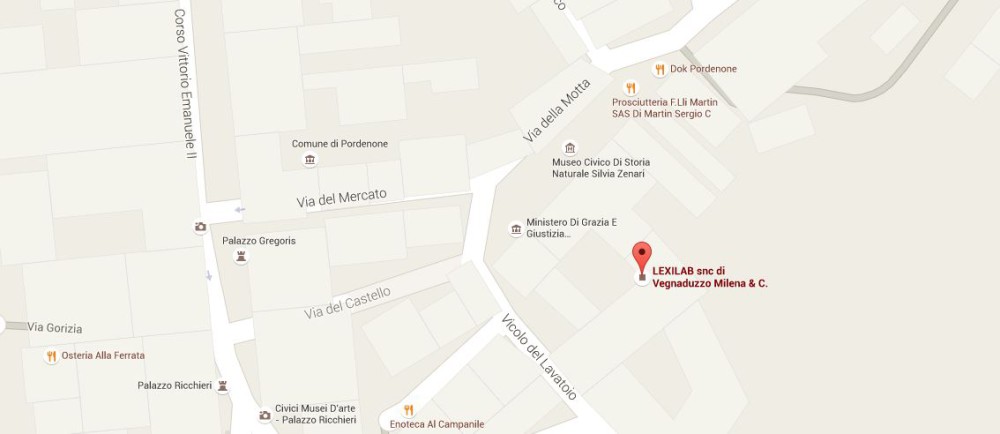Blog

What happened at Lexilab in 2015?
The year is now drawing to a close and the time to take stock has come round again. What happened at Lexilab in 2015? Here are some of the highlights of this year:
- We updated the software we use in-house, to ensure we are up-to-date with cutting-edge technology. We have a new management system with an online portal, personalised customer workflow and new automations to speed up repetitive tasks, ensure everything is under control and leave more time to interact with you, our customers.
- We revamped our website giving it a modern, fresh look to help you find the information you are looking for even more easily. What do you think?
- We welcomed two trainees: Lorenzo from the Translation and Interpreting Faculty at the University of Trieste and Chiara from the Languages and Communication University in Milan. They contributed actively to the company, working on projects and learning the tools and techniques of trade. We are proud to play our part in training the translators of tomorrow!
- We added a new member to our in-house team, Hayley, an English mother tongue translator, who works on translations, revisions, terminology and quality management to help provide you with an even better service.
- We moved offices! We are still in Pordenone but you can now find us in Vicolo del Lavatoio, in a bright, spacious office that stimulates concentration and creativity.
- We went social! We have created a blog where we post news items, articles of interest and useful advice about translating technical documentation. We have also recently added our Facebook page, another source of information and news to help you keep in touch with us.
The year 2015 has been an important one for us with many achievements, and we are already raring to go, full of energy and enthusiasm for 2016. The new year will bring news and surprises for you too. Stay tuned!

LEXILAB HAS MOVED!
After almost 6 years in business, LEXILAB has moved to new premises.
As of 1 December, you can find LEXILAB at its new bright, spacious and functional offices, a relaxed and informal space with just the right atmosphere to stimulate concentration and creativity. Do drop by to say hello at Vicolo del Lavatoio 23, in the historic centre of Pordenone.
Our telephone numbers and e-mail contact details have not changed.
Lexilab snc
Vicolo del Lavatoio 23, scala D int. 2,
Pordenone,
Italy
Tel.(+39) 0434 012321/012322
Fax (+39) 0434 012323
e-mail: trad@lexilab.it – info@lexilab.it

The word of the year 2015? Erm…
Cue the drum roll! Lay down the red carpet! THE word of the year for 2015 is here!
Only, well, it’s not quite a word. This year’s winner of the “Oxford Dictionaries Word of the Year 2015”, piping the other 8 shortlisted words to the post, is snappily known as the “Face with Tears of Joy Emoji”. Familiar to most thanks to the takeover of smartphones, digital chat and the likes of WhatsApp, an emoji, as defined by the dictionary itself, is “a small digital image or icon used to express an idea or emotion in electronic communication“. Their use rocketed in 2015, says the Oxford Dictionary, but this one topped the charts globally, taking a slice of the emoji pie worth a whopping 20% in the UK.
So what does this say about the state of language today? Was no “word” good enough to overtake an emoji? What does this say about the way we use language and communicate with one another? Perhaps this is additional evidence to support the theory that a picture really is worth a thousand words. There is no need to translate it, that’s for sure. It is instant, can be understood across cultures and languages worldwide, and requires minimal typing effort (even less than the initialism “lol”): all factors that no doubt have contributed to its success in expressing an explosion of joy and laughter in messages across the globe. No need to translate it? Surely we don’t usually translate laughter, I hear you say. In fact, even a simple expression of laughter changes when written down in different languages and, therefore, requires translation if you want the message to hit home. For example, the Spanish might “jajaja” while the Brazilians “rsrsrs” and the Brits “haha” (see more here https://en.duolingo.com/comment/3025225). Remember that, the next time you want to show your appreciation of another culture’s humour.
As for the word of the year, perhaps you would have preferred the endearing term for Britain’s possible exit from the European Union, or perhaps the grammarians among you would have cheered for the progressive use of the gender-neutral “they” to refer to a single person (male or female), or maybe you are more of the sharing and caring type and like the idea of a “sharing economy” – whatever your language tastes, there is a new term for you to enjoy among those shortlisted.
To find out more, take a look at the article on the Oxford English Dictionary’s blog: http://blog.oxforddictionaries.com/2015/11/word-of-the-year-2015-emoji/
In the meantime, let us know what you think: should we jump for joy in the face of innovation and developments in communication techniques, or weep in a quiet corner at the loss of language as it once was? Tears of sadness or tears of joy?
Further reading:
“RIP to LOL – the history of laughing out loud” http://www.bbc.co.uk/newsbeat/article/33858624/rip-to-lol—the-history-of-laughing-out-loud
“Emoji” http://www.oxforddictionaries.com/definition/english/emoji
“Oxford Dictionaries Word of the Year 2015” http://blog.oxforddictionaries.com/2015/11/word-of-the-year-2015-emoji/
“Laughter – Is it universal?” https://en.duolingo.com/comment/3025225

